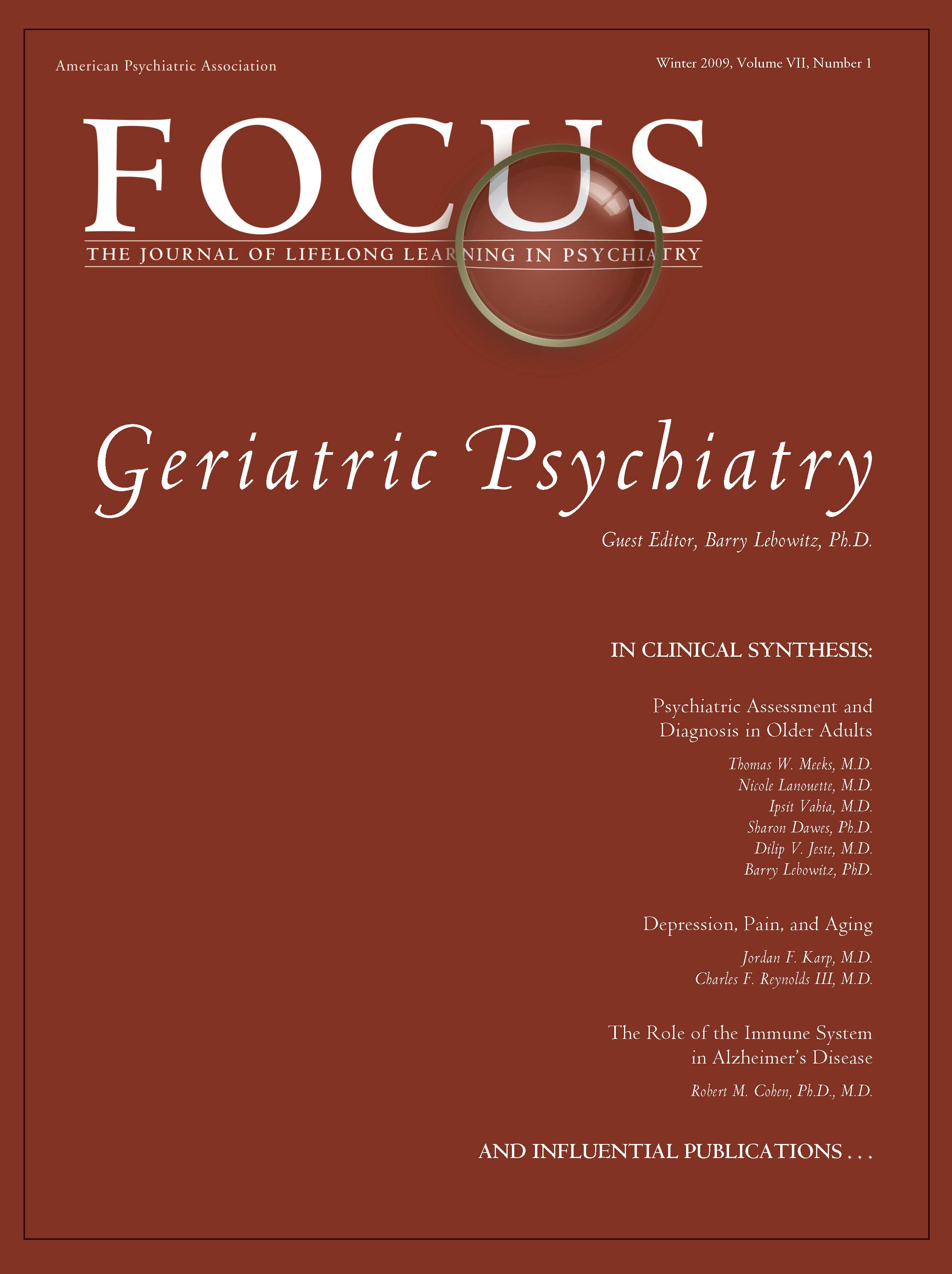Psychiatric Assessment and Diagnosis in Older Adults
Abstract
To provide optimal care, the approach to psychiatric evaluation and diagnosis in older adults requires special attention to several issues. There are important biological, psychological, and social changes associated with either aging itself or with generational differences. In this review, we will address some of the most important aspects of assessment and diagnosis that make geriatric psychiatry a unique subspecialty, including age-related variability in the clinical presentation of common psychiatric disorders, assessment and diagnosis of cognitive disorders and medical comorbidity, and common psychosocial challenges faced by older adults. Although geriatric psychiatrists are uniquely positioned to address the complexities of psychiatric illness in older adults, the fact remains that the majority of older adults who seek psychiatric care will see general adult psychiatrists without subspecialty training. However, with continued vigilance to the issues outlined below, psychiatrists from a variety of training backgrounds can skillfully assess and diagnose psychiatric illnesses in older adults.



